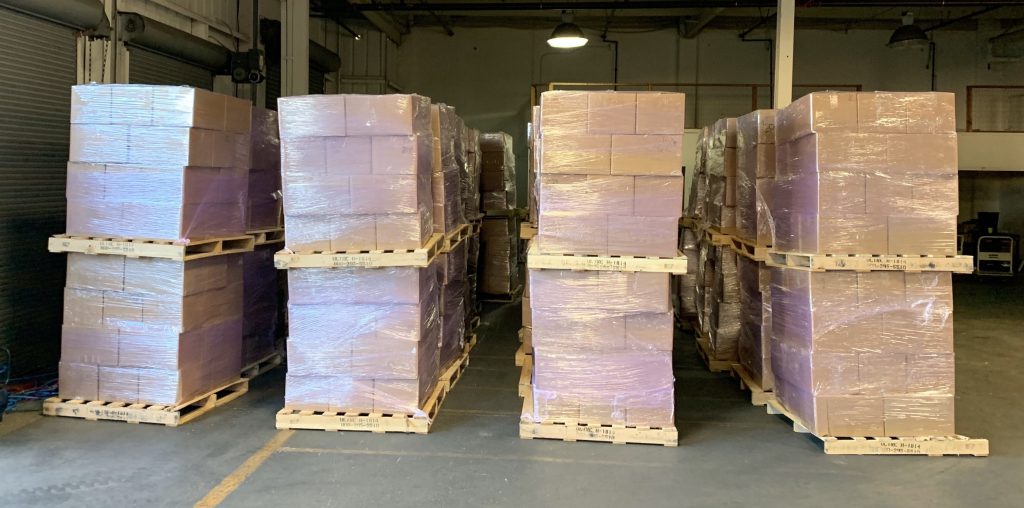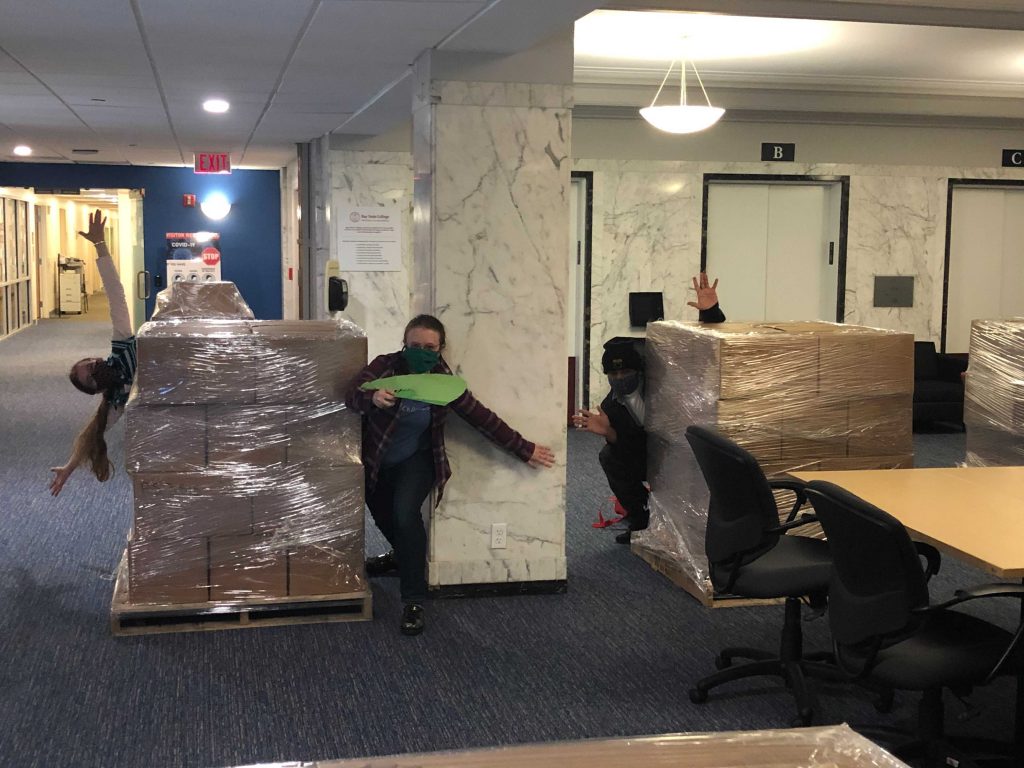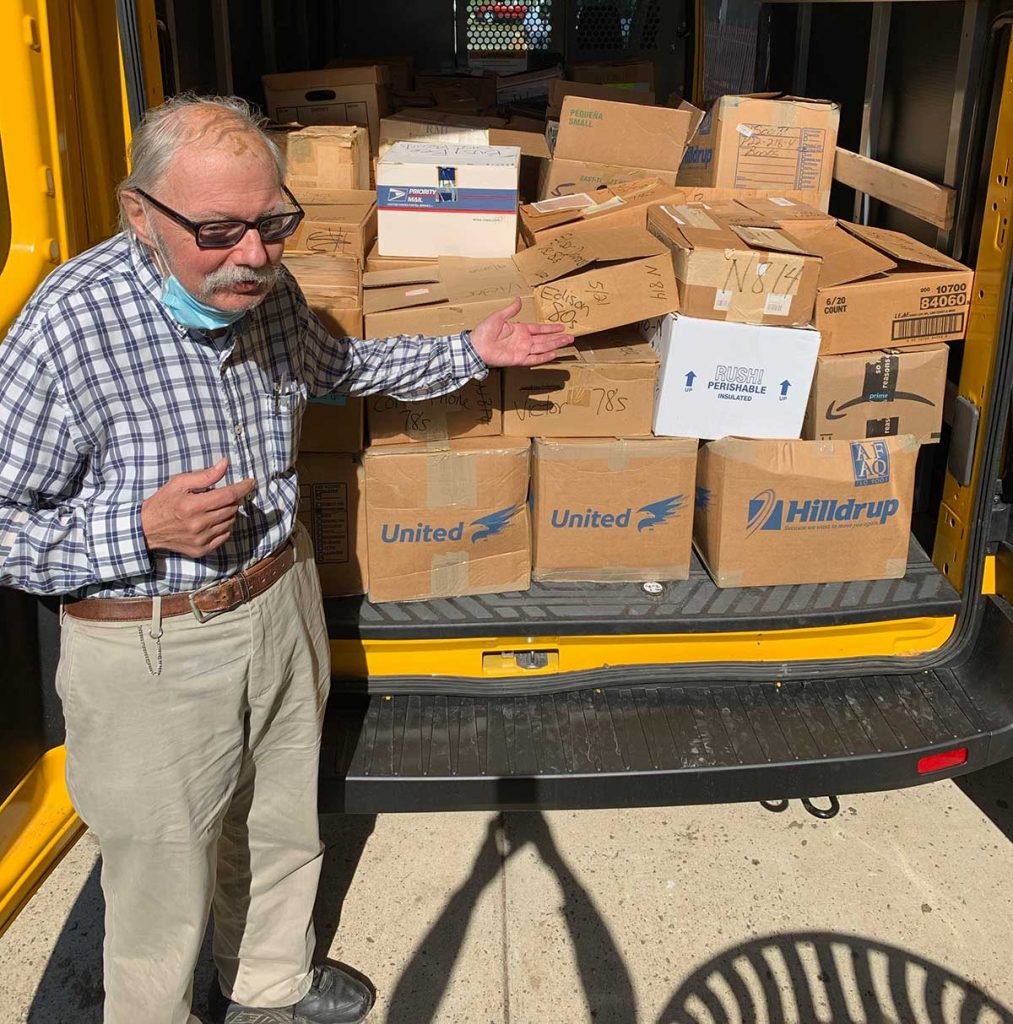
During the pandemic, perhaps you have been cleaning out some bookshelves in your house. Or maybe you are a librarian, planning to be back in your building for the first time in more than a year and restarting collection management activities.
If you are wondering what to do with your excess materials, the Internet Archive can help. The nonprofit library accepts donation books, records (CDs, LPs, 45rpm, 78rpm, cylinders), films, and microforms that it does not already have in its collection. The Archive preserves one copy of everything it receives and tries to find good homes for duplicates. Then, as funding allows, the Archive digitizes the materials and helps them reach a wider audience online.
“No donation is too far away or small to be considered by the Internet Archive.”
Liz Rosenberg, donations manager, Internet Archive
At a recent webinar, staff from the Archive explained the process for donating and encouraged the public’s help as it works to provide universal access to everything ever published.
“No donation is too far away or small to be considered by the Internet Archive,” said Liz Rosenberg, donations manager. She has helped coordinate donations of entire libraries, including collections from Marygrove College in Detroit and Bay State College’s Boston Campus.
Donation Process
To find out more about what’s involved with physical donations, Rosenberg suggests going to the Help page for details about shipping instructions or dropping off donations smaller than about 20 boxes. All others are asked to complete a physical item donation form to provide all the information to make a larger donation happen, including where the items are located, an accurate count, and other special considerations for the offer.
Once submitted, staff begin the planning process to determine if the collection is in a format that can be accepted, if there are duplicates, and the project timeline. Arrangements then can be made for packing and shipping. In the case of larger collections, the Archive typically is able to provide assistance with transportation costs.
Sometimes donors pack their own items and then the Archive pays for the shipping. That was the case for a recent donation of 18,000 records from a music enthusiast in Washington D.C. The donor was looking for a “forever home” for his beloved vinyl and the Archive was happy to schedule a pickup and preserve the rare collection, Rosenberg said.
Why Donate?
For donations of 50 or more items, the Archive can create a collection to both honor the donor and make their donation accessible all in one place. “The ability to access all of their media in one place really reassures our donors that they will still have access to their items even once they’re no longer in their physical possession,” said Rosenberg. Some stories behind major contributions are covered by the Archive in its blog.
Better World Books, a socially responsible bookstore that has a longstanding relationship with the Internet Archive, regularly donates books for preservation and digitization. It receives many of its books from library partners around the world. The Archive accepts many materials that BWB will not.

“We love more than anything to get large collections—entire intellectual units, such as a reference collection that is curated,” said Chris Freeland, a librarian who works at the Archive. “It helps us round out our collection, and helps our patrons. If someone has a collection that no longer fits their collection development priorities, think of Better World Book or the Internet Archive for those materials.”
The Archive is open to over-sized items, such as maps, and books that do not have to have an ISBN number. What about loose periodicals? The Archive does not want a few scattered issues but does have interest in long runs of a magazine.
Once digitized, patrons with print disabilities can access the materials and some are selected to be accessible via Controlled Digital Lending and for machine learning research. Together, we can achieve long term preservation and access to our collective cultural legacy.
